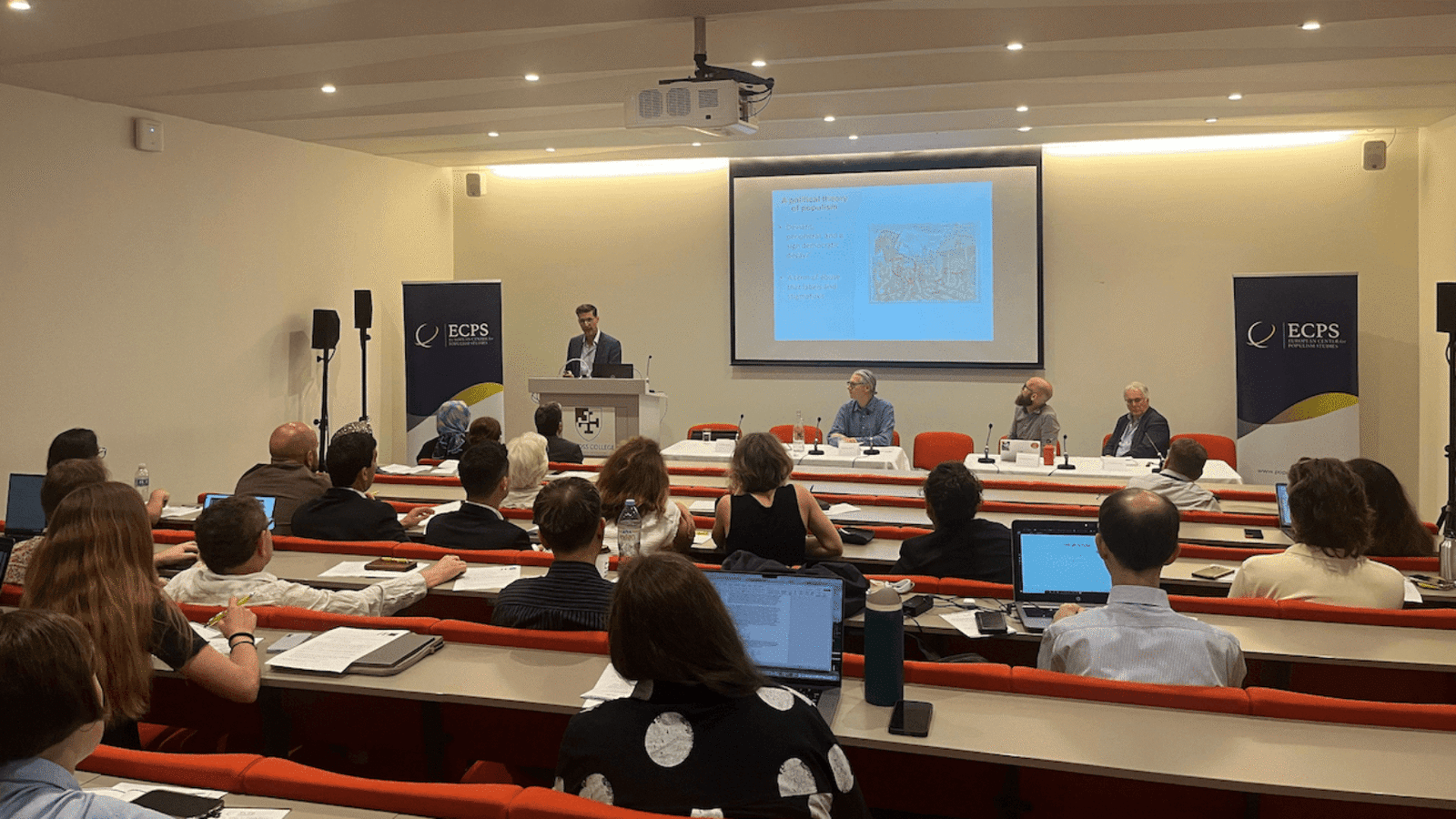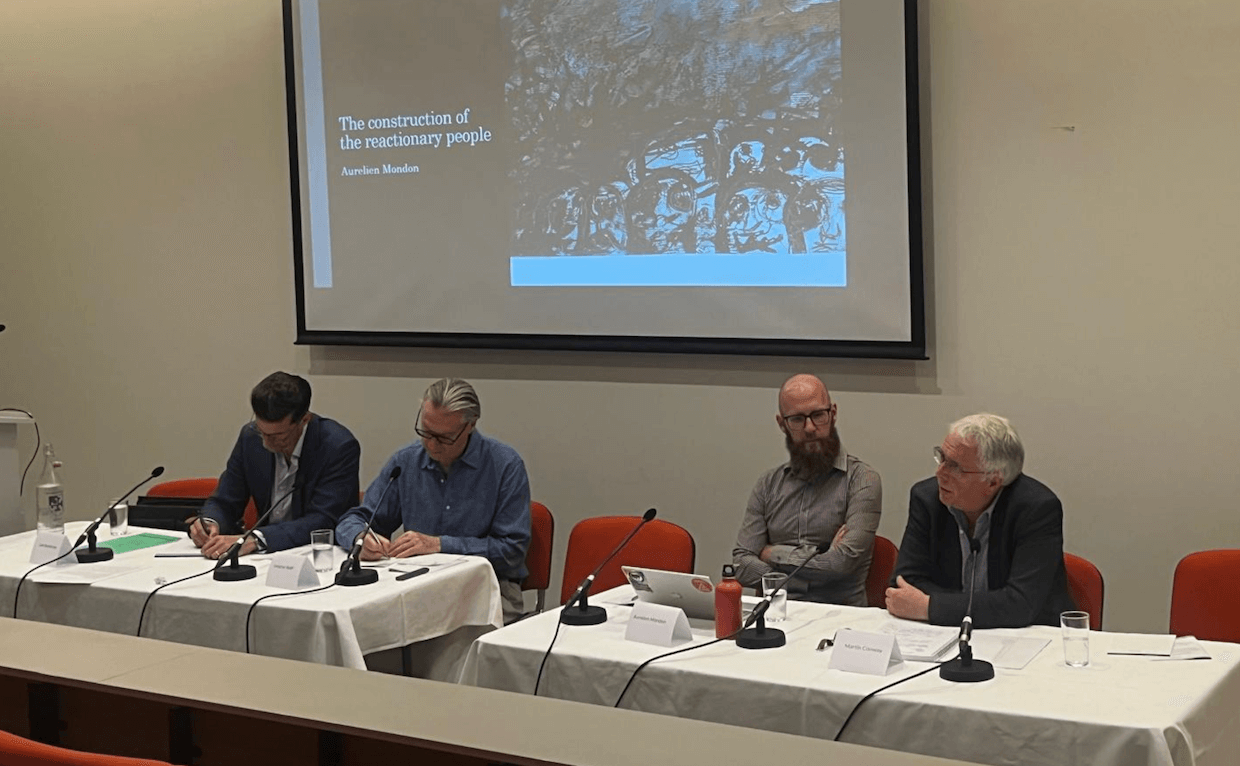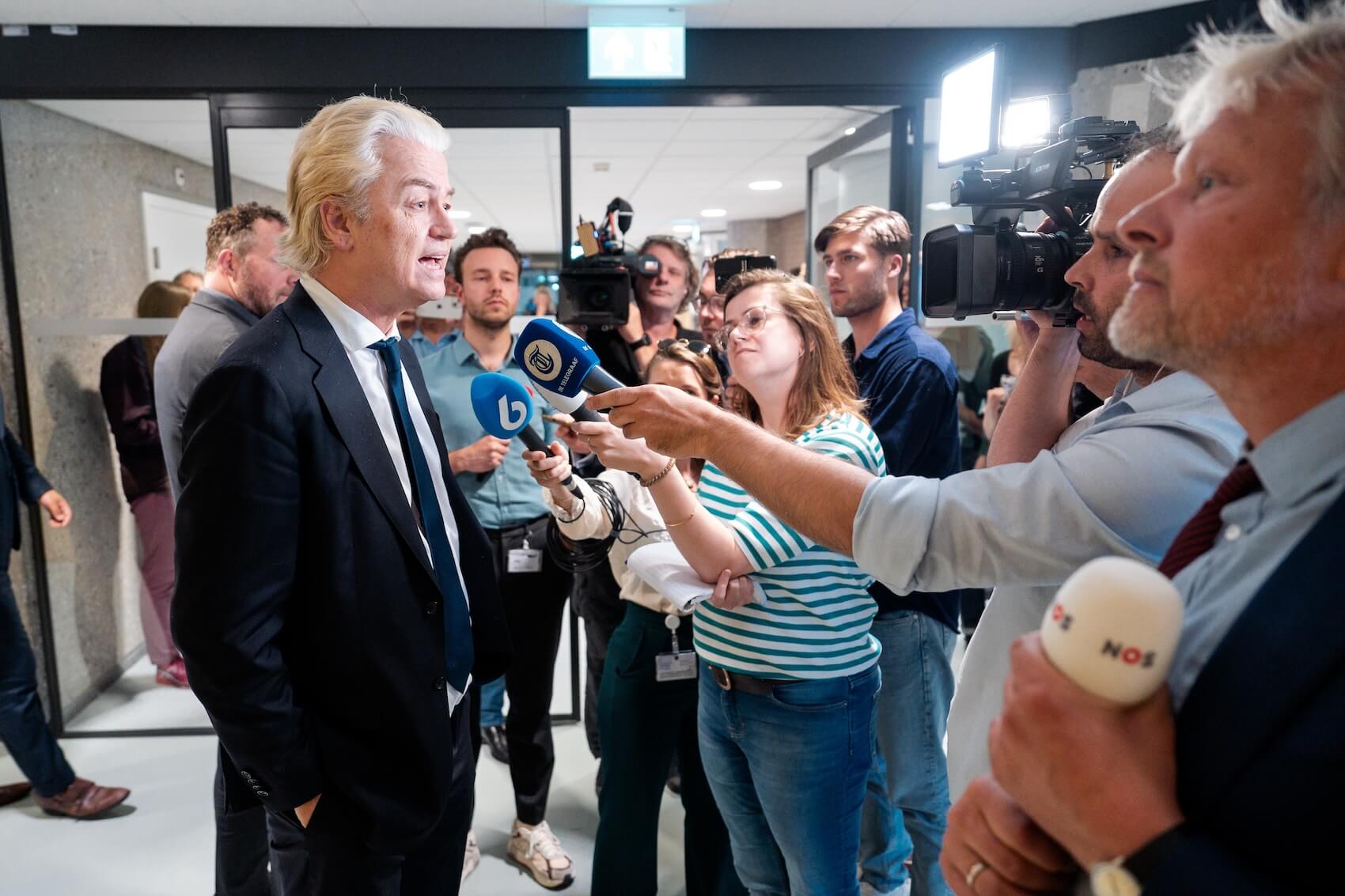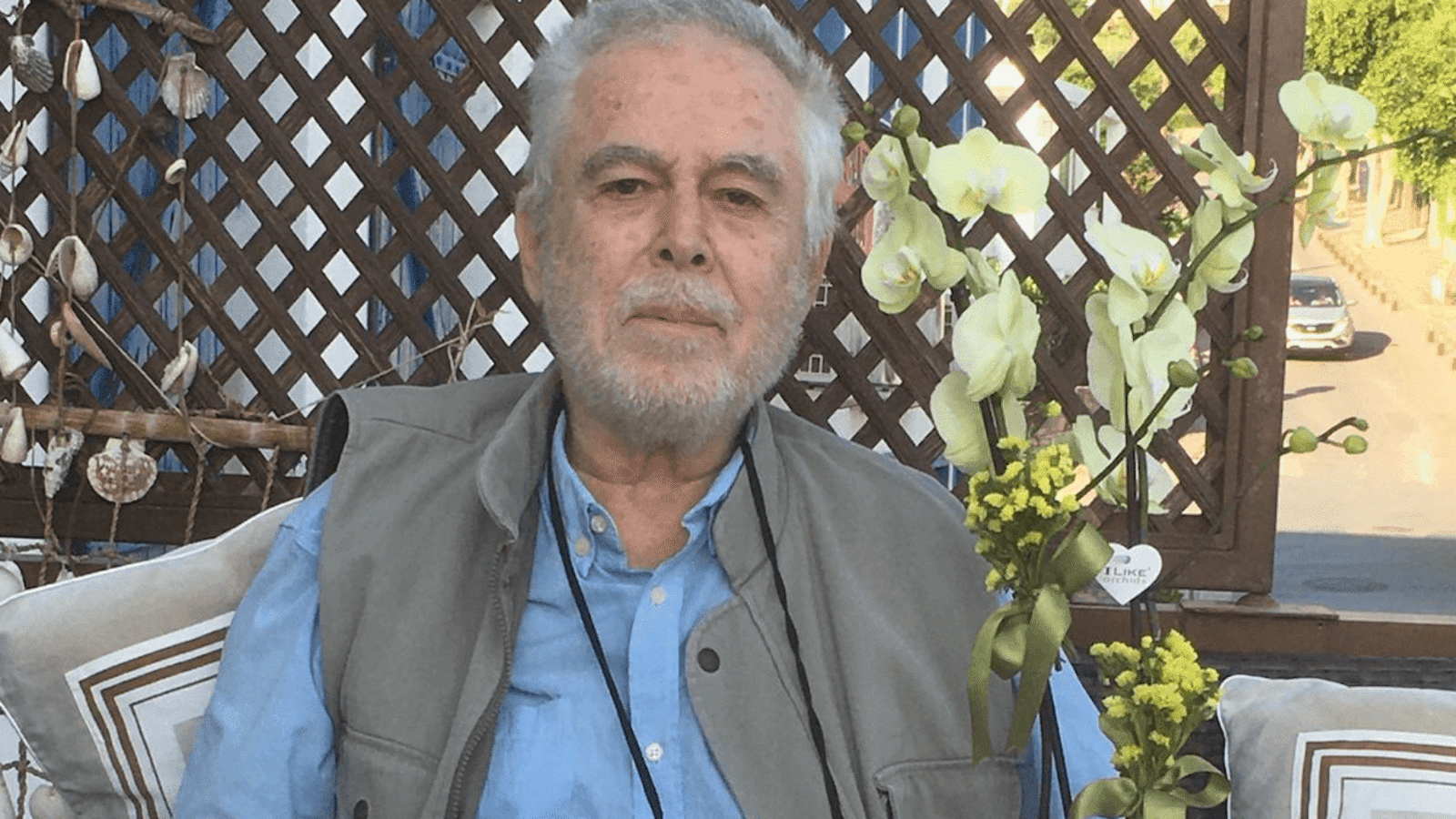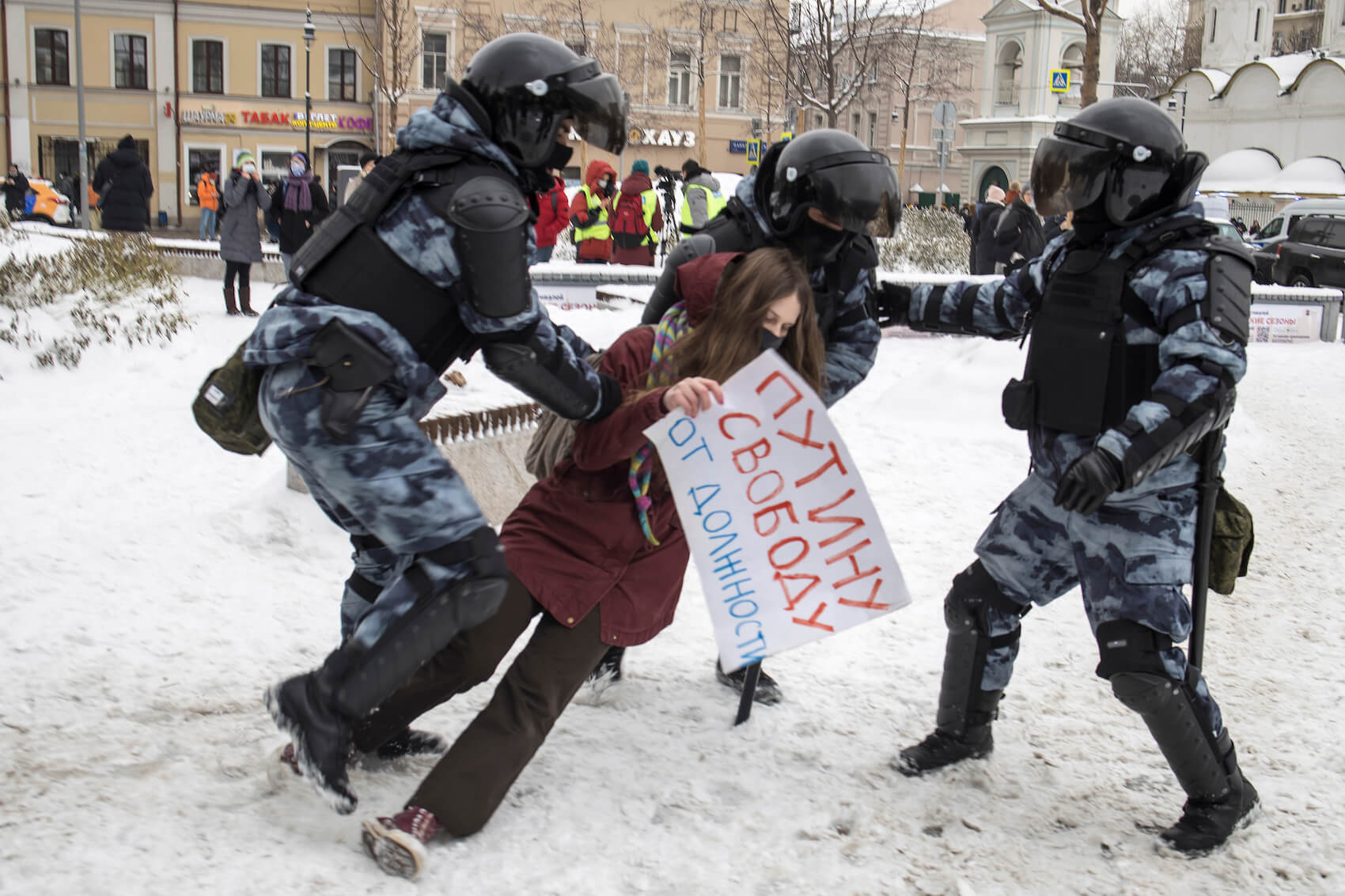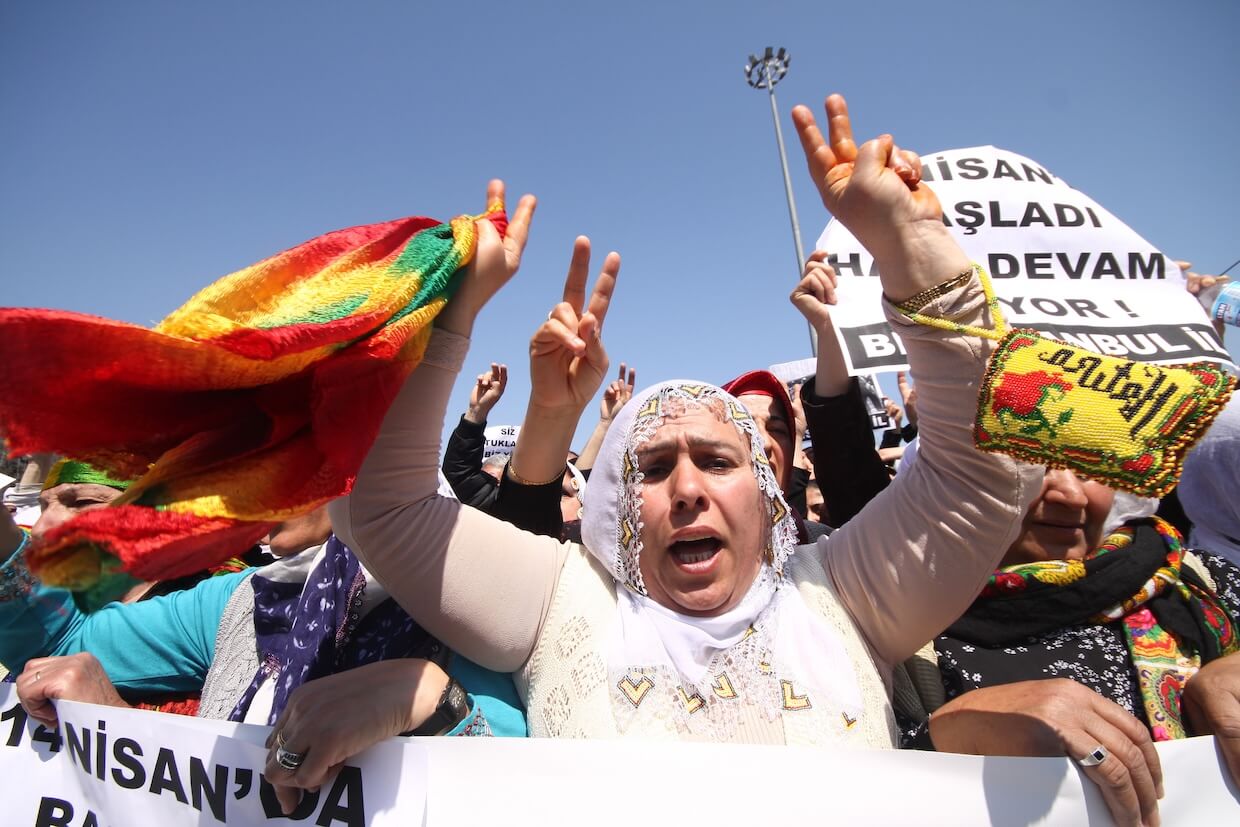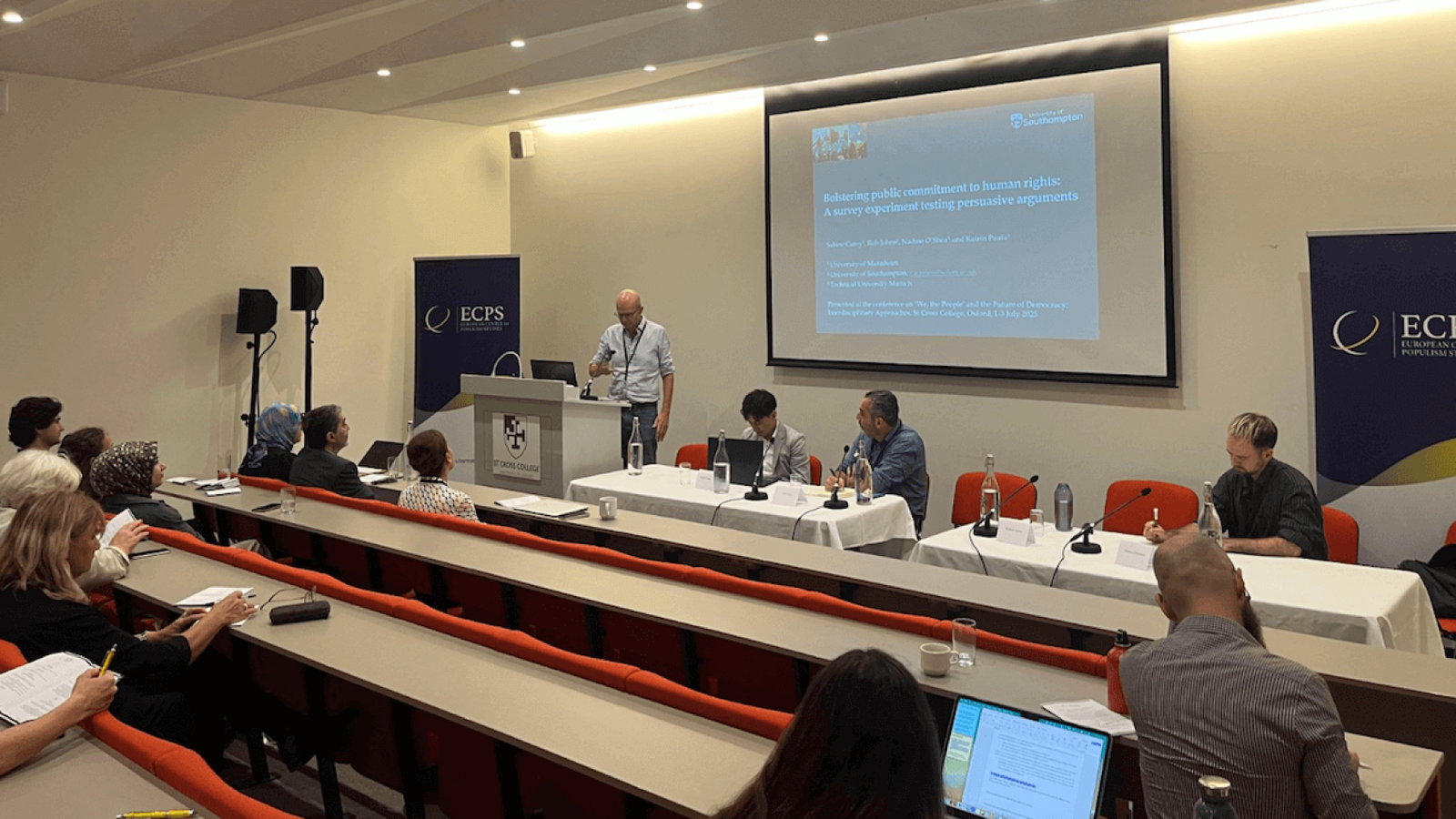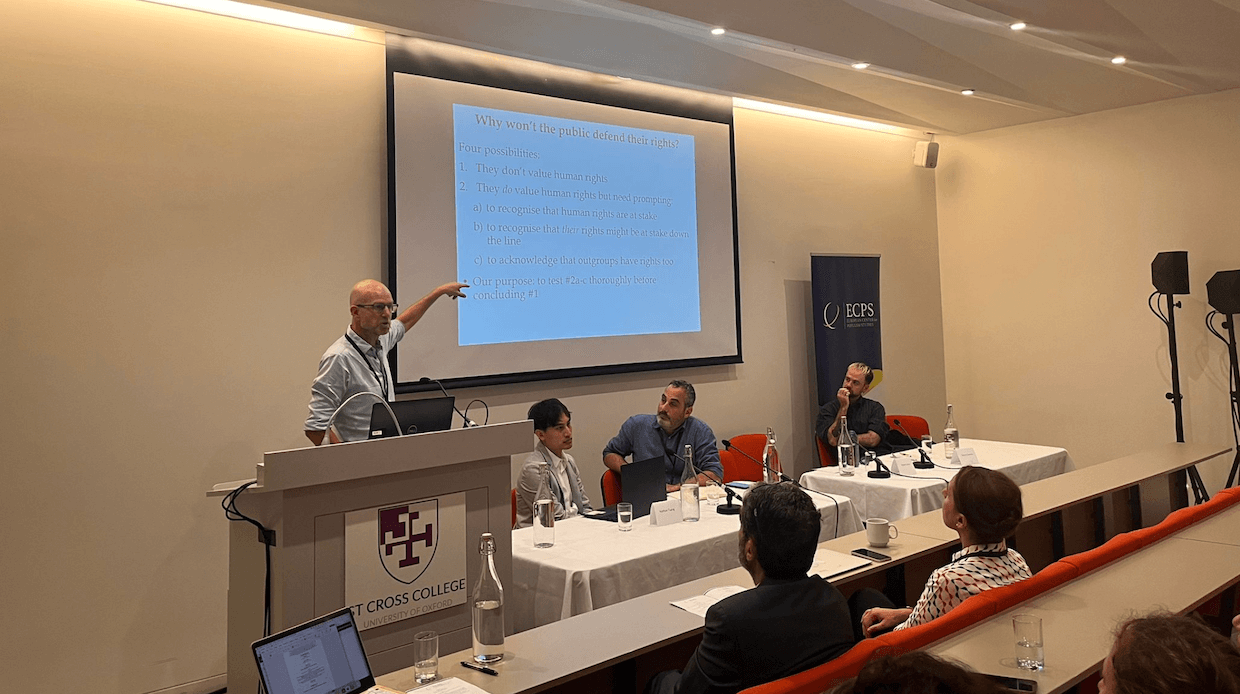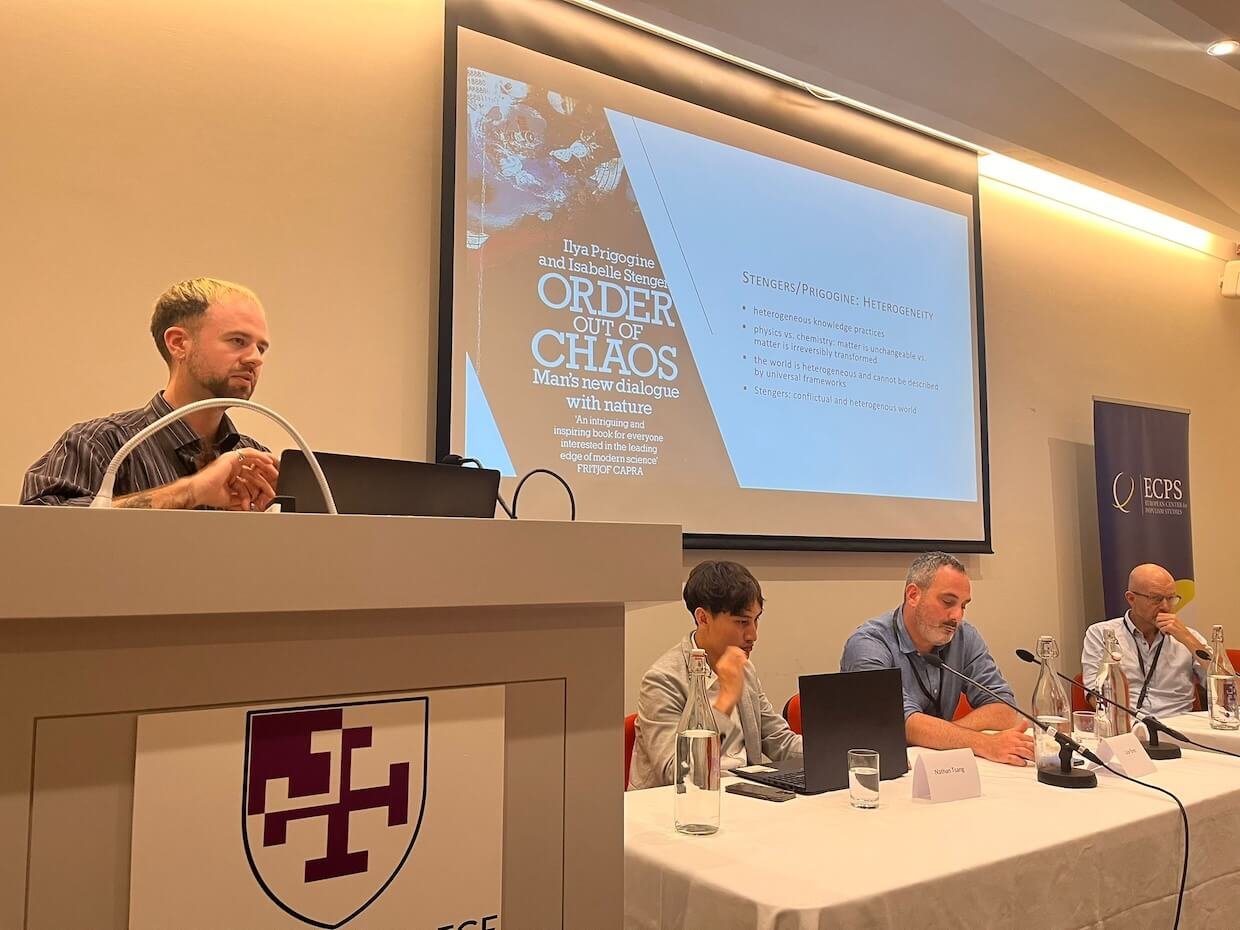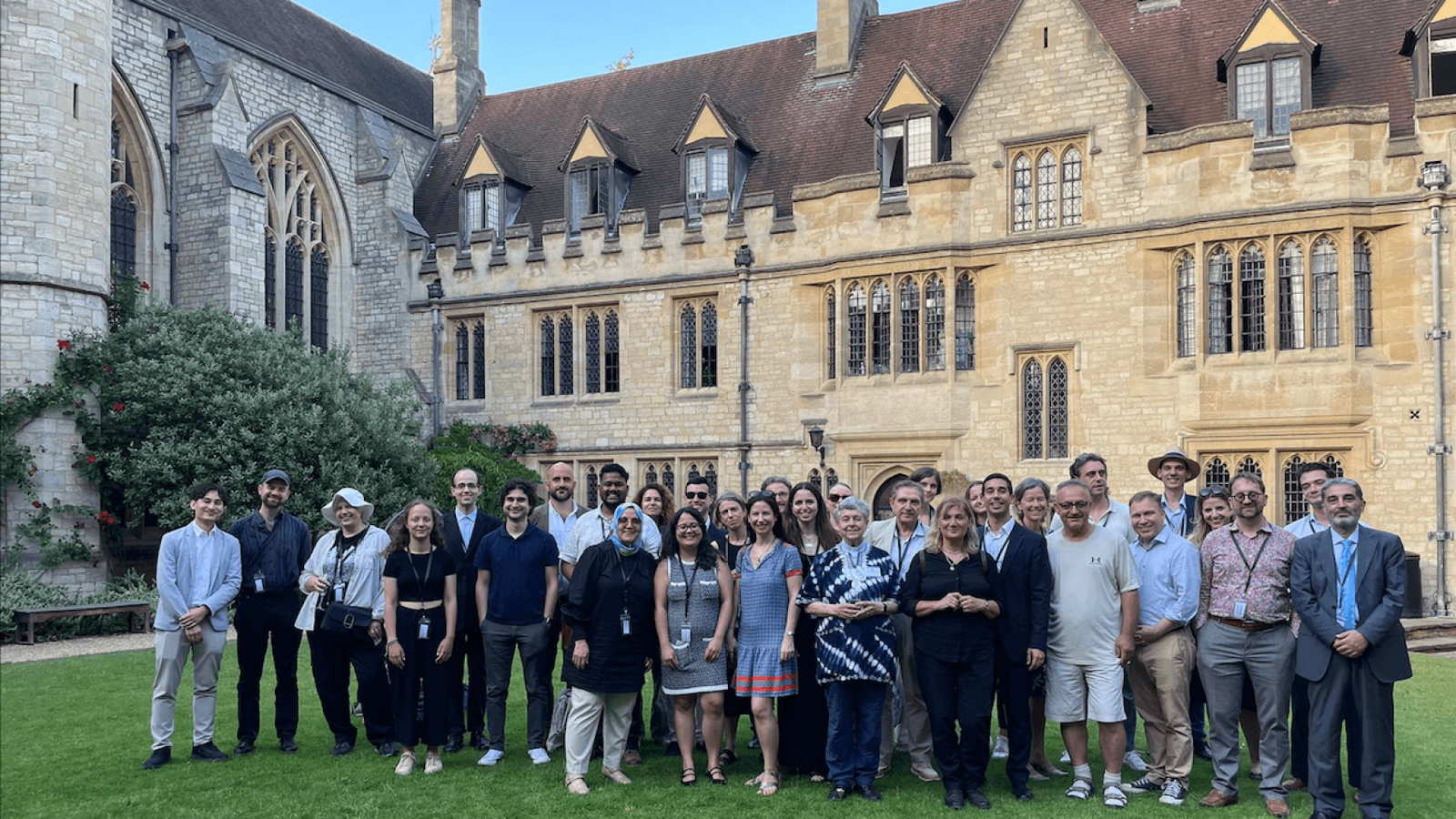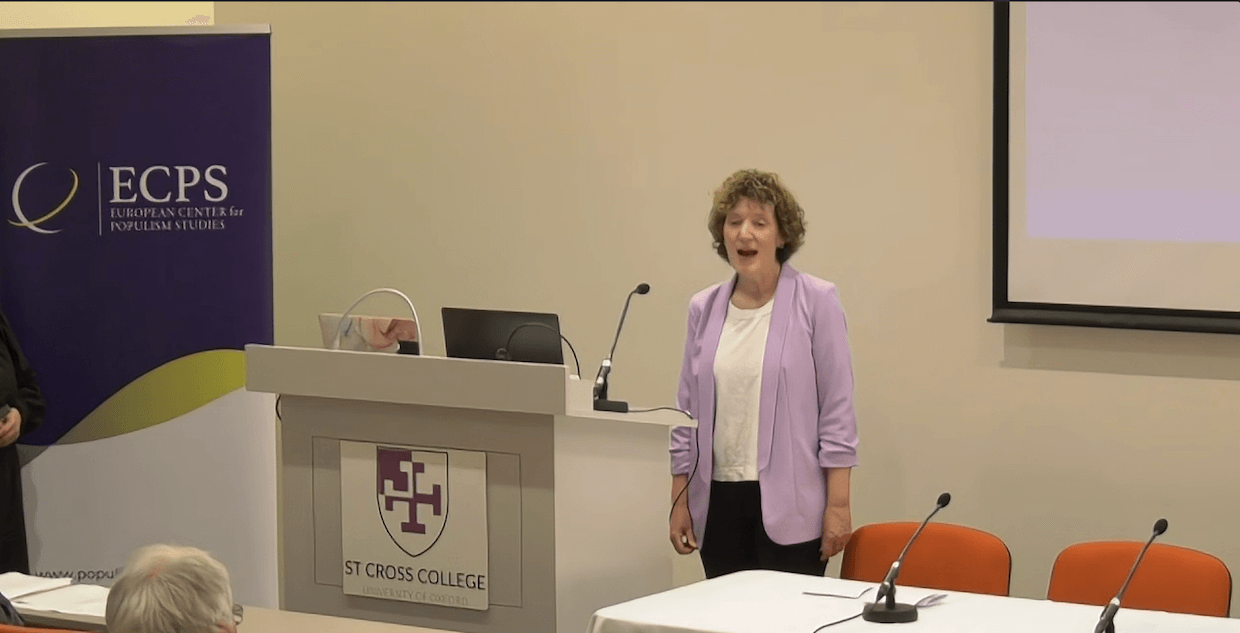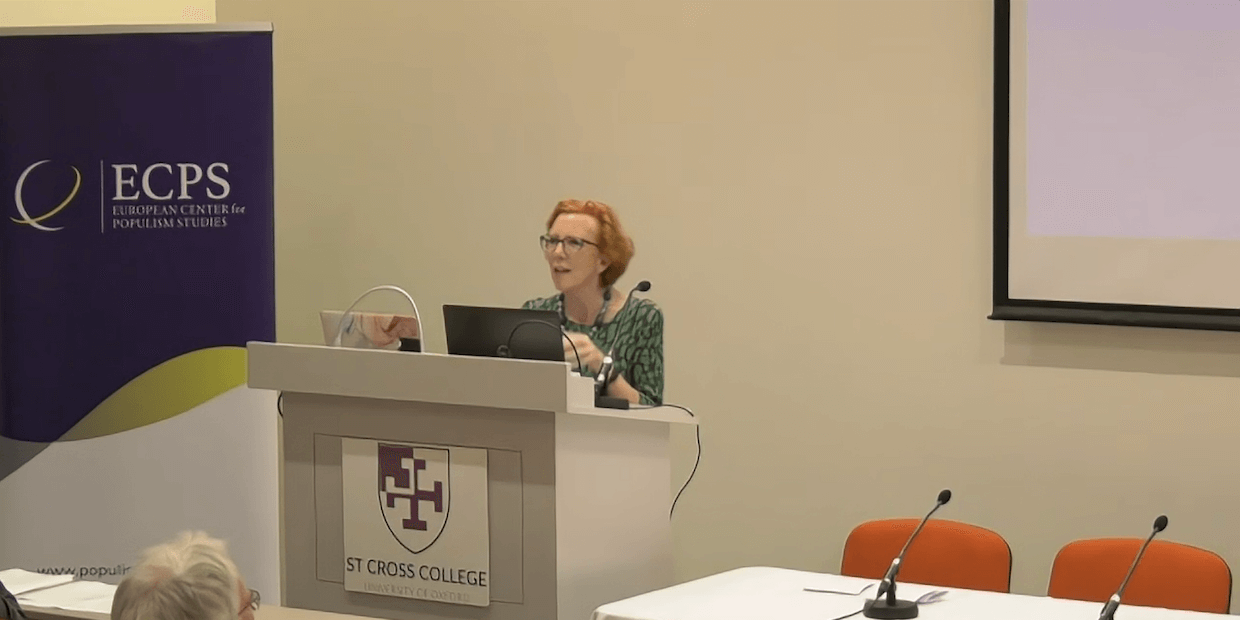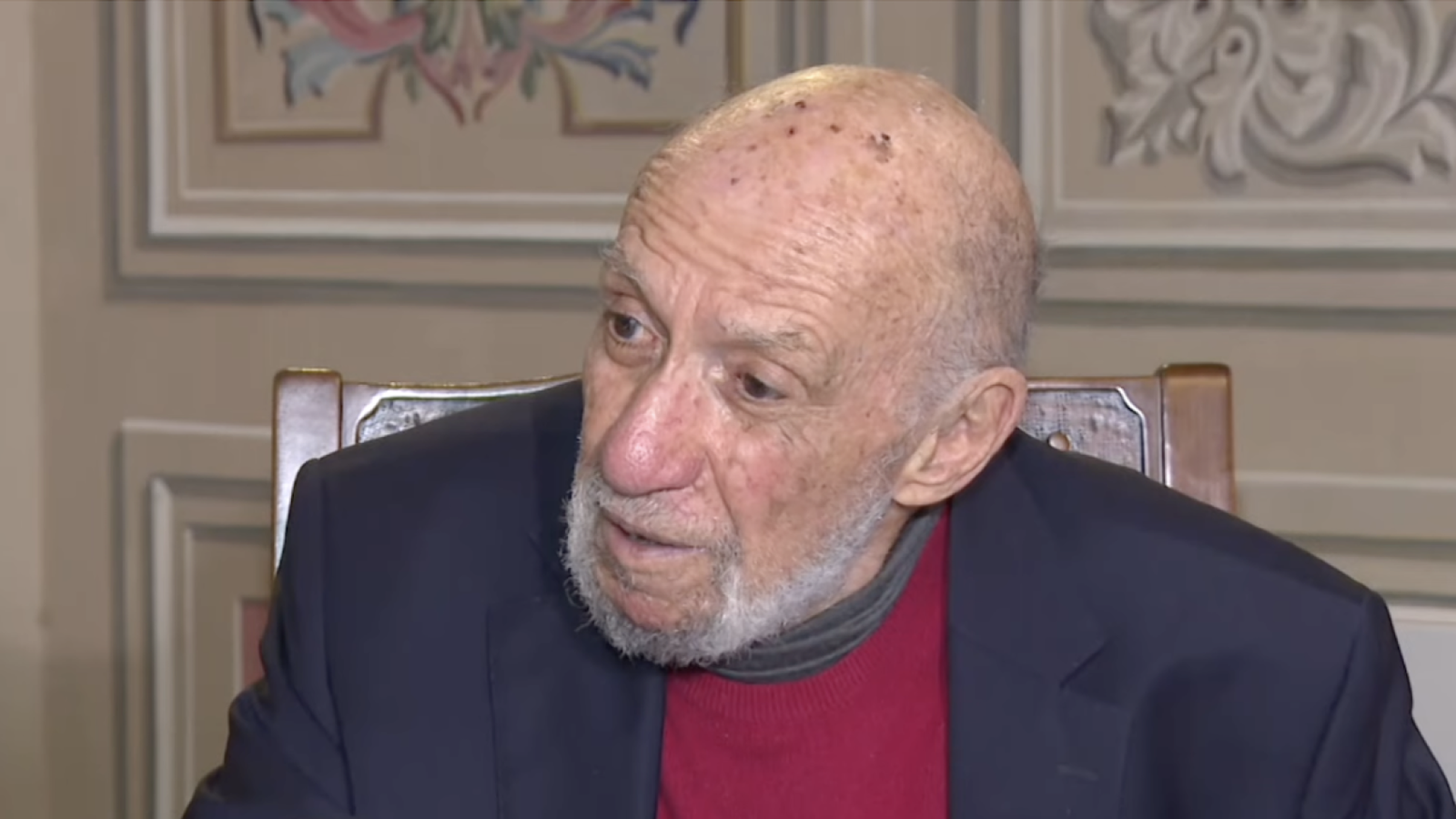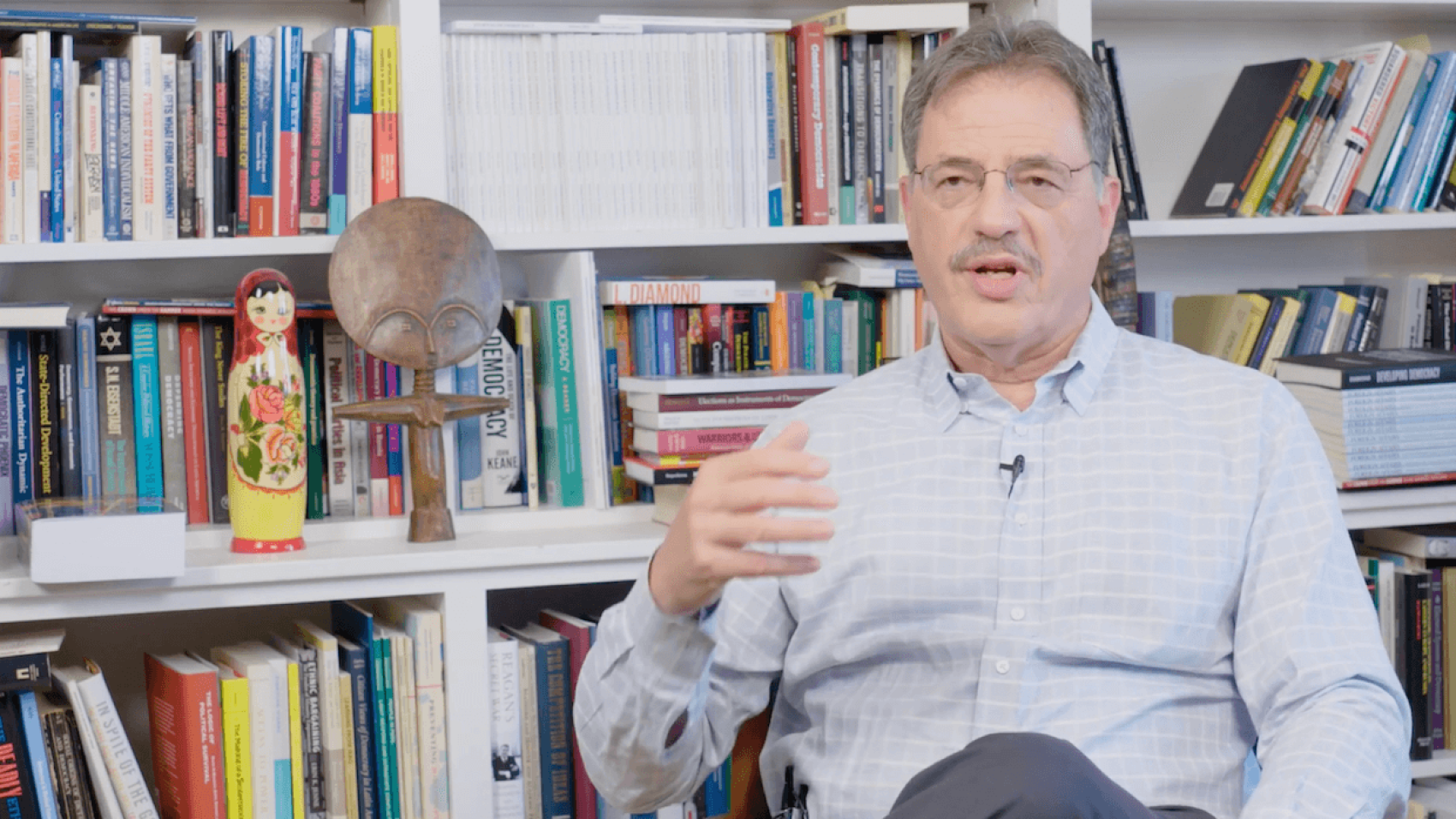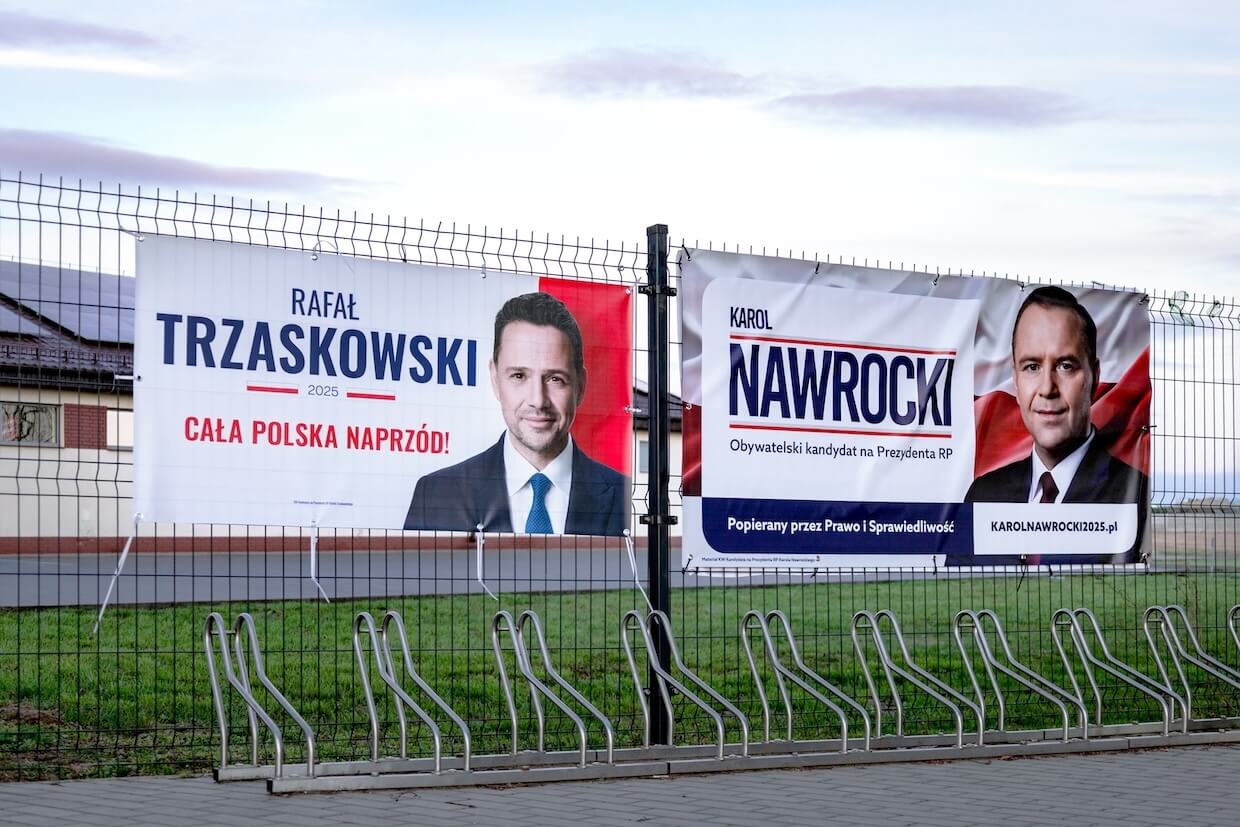Case Competition Information Pack
Are you interested in global political affairs? Do you wish to learn how to draft policy recommendations for policymakers? Are you seeking to broaden your knowledge under the guidance of leading experts, looking for an opportunity to exchange views in a multicultural, multidisciplinary environment, or simply in need of a few extra ECTS credits for your studies? If so, consider applying to the ECPS Summer School. The European Centre for Populism Studies (ECPS) invites young individuals to participate in a unique opportunity to evaluate the relationship between populism and climate change during a five-day Summer School led by global experts from diverse backgrounds. The Summer School will be interactive, enabling participants to engage in discussions in small groups within a friendly atmosphere while sharing perspectives with the lecturers. You will also take part in a Case Competition on the same subject, providing a unique experience to develop problem-solving skills through collaboration with others under tight schedules.
Overview
Climate change intersects with numerous issues, transforming it into more than just an environmental challenge; it has developed into a complex and multifaceted political issue with socio-economic and cultural dimensions. This intersection makes it an appealing topic for populist politicians to exploit in polarizing societies. Therefore, with the rise of populist politics globally, we have seen climate change increasingly become part of the populist discourse.
Populist politics present additional barriers to equitable climate solutions, often framing global climate initiatives as elitist or detrimental to local autonomy. Thus, populism in recent years has had a profound impact on climate policy worldwide. This impact comprises a wide spectrum, from the climate skepticism and deregulation policies of leaders like Donald Trump to the often-contradictory stances of left-wing populist movements.
We are convinced that this pressing issue not only requires an in-depth understanding but also deserves our combined effort to seek solutions. Against this backdrop, we are pleased to announce the ECPS Summer School on “Populism and Climate Change: Understanding What Is at Stake and Crafting Policy Suggestions for Stakeholders”, which will be held online from 7 to 11 July 2025. This interdisciplinary five-day program has two primary objectives: a) to explore how both right-wing and left-wing populist movements approach the issue of climate change and how they influence international cooperation efforts and local policies, and b) to propose policy suggestions for stakeholders to address the climate change crisis, independent of populist politics.
We aim to critically examine the role of populism in shaping climate change narratives and policies; provide a platform for exploring diverse political ideologies and their implications for climate action; and foster a deeper understanding of the tension between economic, political, and environmental interests in both right and left-wing populist movements. Critically engaging with the key conclusions from the Baku Conference on climate justice and populism (2024), we will particularly look at the impact of authoritarian and populist politics in shaping climate governance.
Methodology
The program will take place on Zoom, consisting of two sessions each day and will last five days. The lectures are complemented by small group discussions and Q&A sessions moderated by experts in the field. Participants will have the opportunity to engage with leading scholars in the field as well as with activists and policymakers working at the forefront of these issues.
Furthermore, this summer school aims to equip attendees with the skills necessary to craft policy suggestions. To this end, a Case Competition will be organized to identify solutions to issues related to climate change and the environment. Participants will be divided into small groups and will convene daily on Zoom to work on a specific problem related to the topic of populism and climate change. They are expected to digest available literature, enter in-depth discussions with group members and finally prepare an academic presentation which brings a solution to the problem they choose. Each group will present their policy suggestions on the final day of the programme to a panel of scholars, who will provide feedback on their work. The groups may transform their presentations into policy papers, which will be published on the ECPS website.
Topics will include:
- Climate justice: global dichotomy between developed and developing countries
- Local responses from the US, Europe, Asia and the Global South
- Eco-colonialism, structural racism, discrimination and climate change
- Populist narratives on sustainability, energy resources and climate change
- Climate migration and populist politics
- Climate, youth, gender and intergenerational justice
- Eco-fascism, climate denial, economic protectionism and far-right populism
- Left-wing populist discourse, climate activism and the Green New Deal
- Technological advancement and corporate responsibility in climate action.
Program Schedule and Lecturers
Monday, July 7, 2025
Lecture One: (15:00-16:30) — Far-right and Climate Change
Lecturer: Bernhard Forthchner (Associate Professor at the School of Art, Media and Communication, University of Leicester).
Moderator: Sabine Volk (Postdoctoral researcher, Institute for Research on Far-Right Extremism (IRex), Tübingen University).
Lecture Two: (17:30-19:00) — Climate Justice and Populism
Lecturer: John Meyer (Professor of Politics, California State Polytechnic University, Humboldt).
Moderator: Manuela Caiani (Associate Professor in Political Science, Scuola Normale Superiore, Italy).
Tuesday, July 8, 2025
Lecture Three: (15:00-16:30) –– Climate Change, Food, Farmers, and Populism
Lecturer: Sandra Ricart (Assistant Professor at the Environmental Intelligence for Global Change Lab, at the Department of Electronics, Information and Bioengineering at the Politecnico di Milano, Italy).
Moderator: Vlad Surdea-Hernea (Post-doctoral Researcher, Institute of Forest, Environmental and Natural Resource Policy, University of Natural Resources and Life Sciences Vienna).
Lecture Four: (17:30-19:00) — Ideology Meets Interest Group Politics: The Trump Administration and Climate Mitigation
Lecturer: Daniel Fiorino (Professor of Politics and Director at the Centre for Environmental Policy, American University).
Moderator: Azize Sargın (PhD., Director of External Relations, ECPS).
Wednesday, July 9, 2025
Lecture Five: (15:00-16:30) — Art, Climate, and Populism
Lecturer: Heidi Hart (Arts Researcher, Nonresident Senior Fellow at ECPS).
Moderator: João Ferreira Dias (Researcher, Centre for International Studies, ISCTE) (TBC)
Lecture Six: (17:30-19:00) — Populist Discourses on Climate and Climate Change
Lecturer: Dr. Eric Swyngedouw (Professor of Geography, University of Manchester).
Moderator: Jonathan White (Professor of Politics, LSE).
Thursday, July 10, 2025
Lecture Seven: (15:00-16:30) —Climate Change, Natural Resources and Conflicts
Lecturer: Philippe Le Billon (Professor of Political Geography at the University of British Columbia).
Moderator: Mehmet Soyer (Assistant Professor of Sociology, Utah State University).
Lecture Eight: (17:30-19:00) — Climate Change Misinformation: Supply, Demand, and the Challenges to Science in a “Post-Truth” World
Lecturer: Stephan Lewandowsky (Professor of Psychology, University of Bristol).
Moderator: Neo Sithole (Research Fellow, ECPS)
Friday, July 11, 2025
Lecture Nine: (17:30-19:00) — Populist Narratives on Sustainability, Energy Resources and Climate Change
Lecturer: Robert Huber (Professor of Political Science Methods, University of Salzburg).
Moderator: Susana Batel (Assistant Researcher and Invited Lecturer at University Institute of Lisbon, Center for Psychological Research and Social Intervention).
Who should apply?
This course is open to master’s and PhD level students and graduates, early career researchers and post-docs from any discipline. The deadline for submitting applications is June 16, 2025. The applicants should send their CVs to the email address ecps@populismstudies.org with the subject line: ECPS Summer School Application.
We value the high level of diversity in our courses, welcoming applications from people of all backgrounds.
As we can only accept a limited number of applicants, it is advisable to submit applications as early as possible rather than waiting for the deadline.
Evaluation Criteria and Certificate of Attendance
Meeting the assessment criteria is required from all participants aiming to complete the program and receive a certificate of attendance. The evaluation criteria include full attendance and active participation in lectures.
Certificates of attendance will be awarded to participants who attend at least 80% of the sessions. Certificates are sent to students only by email.
Credit
This course is worth 5 ECTS in the European system. If you intend to transfer credit to your home institution, please check the requirements with them before you apply. We will be happy to assist you; however, please be aware that the decision to transfer credit rests with your home institution.
Brief Biographies and Abstracts
Day One: Monday, July 7, 2025
Far-right and Climate Change
Bernhard Forchtner is an associate professor at the School of Arts, Media, and Communication, University of Leicester (United Kingdom), and has previously worked as a Marie Curie Fellow at the Institute of Social Sciences at the Humboldt University in Berlin (Germany), where he conducted a project on far-right discourses on the environment (2013-2015, project number 327595). His research focuses on the far right and, in particular, the far right’s multimodal environmental communication. Publications include the two edited volumes The Far Right and the Environment (Routledge, 2019) and Visualising Far-Right Environments (Manchester University Press, 2023).
Abstract: This lecture will offer an overview of the current state of research on the far right and climate change (with a focus on Europe), considering both political parties and non-party actors. The lecture will discuss both general trends of and the dominant claims employed in climate communication by the far right. In so doing, it will furthermore highlight longitudinal (affective) changes and will discuss the far right’s visual climate communication (including its gendered and populist dimension).
Reading list
Ekberg, K., Forchtner, B., Hultman, M. and Jylhä, K. M. (2022). Climate Obstruction. How Denial, Delay and Inaction are Heating the Planet. Routledge. pp. 1-20 (Chapter 1: ‘Introduction’) and 69-94 (Chapter 4: ‘The far right and climate obstruction’).
– ‘The far right and climate obstruction’ offers a review of research on the far right and climate change, while ‘Introduction’ provides a general conceptual model of how to think about different modes of climate obstruction.
Forchtner, B. and Lubarda, B. (2022): Scepticisms and beyond? A comprehensive portrait of climate change communication by the far right in the European Parliament. Environmental Politics, 32(1): 43–68.
– The article analyses climate change communication by the far right in the European Parliament between 2004 and 2019, showing which claims have been raised by these parties and how they have shifted over time.
Schwörer, J. and Fernández-García, B. (2023): Climate sceptics or climate nationalists? Understanding and explaining populist radical right parties’ positions towards climate change (1990–2022). Political Studies, 72(3): 1178-1202.
The article offers an analysis of manifestos of Western European political parties, illustrating salience and positioning over three decades.
Climate Justice and Populism
John M. Meyer is Professor in the Departments of Politics and Environmental Studies at California State Polytechnic University, Humboldt. As a political theorist, his work aims to help us understand how our social and political values and institutions shape our relationship with “the environment,” how these values and institutions are shaped by this relationship, and how we might use an understanding of both to pursue a more socially just and sustainable society. Meyer is the author or editor of seven books. These include the award-winning Engaging the Everyday: Environmental Social Criticism and the Resonance Dilemma (MIT, 2015) and The Oxford Handbook of Environmental Political Theory (Oxford, 2016). From 2020-2024, he served as editor-in-chief of the international journal, Environmental Politics.
Abstract: Many have argued that an exclusionary conception of “the people” and a politicized account of scientific knowledge and expertise make populism a fundamental threat to effective action to address climate change. While this threat is very real, I argue that it often contributes to a misguided call for a depolicitized, consensus-based “anti-populist” alternative. Climate Justice movements can point us toward a more compelling response. Rather than aiming to neutralize or circumvent the passions elicited by populism, it offers the possibility of counter-politicization that can help mobilize stronger climate change action. Here, an inclusive conception of “the people” may be manifest as horizontal forms of solidarity generated by an engagement with everyday material concerns.
Reading List
John M. Meyer. (2025). “How (not) to politicise the climate crisis: Beyond the anti-populist imaginary,” with Sherilyn MacGregor. Politische Vierteljahresschrift.
John M. Meyer. (2024). “The People; and Climate Justice: Reconceptualising Populism and Pluralism within Climate Politics,” Polity.
John M. Meyer. (2024). Power and Truth in Science-Related Populism: Rethinking the Role of Knowledge and Expertise in Climate Politics, Political Studies.
Additional Recent Readings
Driscoll, Daniel. (2023). “Populism and Carbon Tax Justice: The Yellow Vest Movement in France.” Social Problems, 70 (1): 143–63. https://doi.org/10.1093/socpro/spab036
Lucas, Caroline, and Rupert Read. (2025). “It’s Time for Climate Populism.” New Statesman (blog). February 7, 2025. https://www.newstatesman.com/environment/2025/02/its-time- for-climate-populism
White, Jonathan. (2023). “What Makes Climate Change a Populist Issue?” Grantham Research Institute on Climate Change and the Environment Working Paper, no. No. 401 (September). https://www.lse.ac.uk/granthaminstitute/wp-content/uploads/2023/09/working-paper-401-White.pdf.
Day Two: Tuesday, July 8, 2025
Delving into European’ Farmers Protests and Citizens’ Attitudes Towards Agriculture in a Climate Change Context: Insights from policy and populism
Sandra Ricart is an Assistant Professor in the Environmental Intelligence Lab at the Department of Electronics, Information and Bioengineering at the Politecnico di Milano, Italy. She holds a PhD in Geography – Experimental Sciences and Sustainability by the University of Girona, Spain, in 2014 and performed postdoctoral stays at the University of Alicante (Spain), Università degli Studi di Milano and the Politecnico di Milano (Italy), Université de Pau et des Pays de l’Adour (France), and Wageningen University and Research (Netherlands). She was an invited professor at the Landcare Research Centre in New Zealand and a visiting scholar at the University of California, Los Angeles. As a human-environment geographer, her research focuses on climate change narratives and behavior from farmers’ and stakeholders’ perspectives, delving into how social learning and behavior modelling can be combined to enhance adaptive capacity, robust decision-making processes and trusted policy co-design. Dr. Ricart co-authored more than sixty publications, attended several international conferences, and participated in a dozen international and national research projects. Sandra serves as Assistant Editor of the International Journal of Water Resources Development and PLOS One journal, and she is an expert evaluator by the European Commission and different national research councils.
Abstract: Though there are national differences, farmers across Europe are generally upset about dropping produce prices, rising fuel costs, and competition from foreign imports, but are also concerned by the painful impacts of the climate crisis and proposed environmental regulations under the new CAP and the European Green Deal. These common challenges motivated, in 2024, a series of protests from the Netherlands to Belgium, France, Spain, Germany and the UK, with convoys of tractors clogging roads and ports, farmer-led occupations of capital cities and even cows being herded into the offices of government ministers. Farmers have felt marginalised as they feel overburdened by rules and undervalued by city dwellers, who tend to eat the food they grow without being much interested in where it came from. In this context, farmers started to receive increasing support from a range of far-right and populist parties and groups, who aim to crystallise resentment and are bent on bringing down Green Deal environmental reforms. This talk will delve into the reasons behind farmers’ protests and the link with populism, providing examples, as well as an analysis of citizens’ perspectives on agriculture and climate change strategies, which will enrich the debate on the nexus between policy and populism.
Reading List
Special Eurobarometer 538 Climate Change – Report, 2023, Available here: https://europa.eu/eurobarometer/surveys/detail/2954
Special Eurobarometer 556 Europeans, Agriculture, and the CAP – Report, 2025. https://europa.eu/eurobarometer/surveys/detail/3226
Zuk, P. (2025). “The European Green Deal and the peasant cause: class frustration, cultural backlash, and right-wing nationalist populism in farmers’ protests in Poland.” Journal of Rural Studies, 119:103708. https://doi.org/10.1016/j.jrurstud.2025.103708
Newspapers
What’s behind farmers’ protests returning to the streets of Brussels? https://www.euronews.com/my-europe/2025/05/19/whats-behind-farmers-protests-returning-to-the-streets-of-brussels
Rural decline and farmers’ anger risks fuelling Europe’s populism. https://www.friendsofeurope.org/insights/frankly-speaking-rural-decline-and-farmers-anger-risks-fuelling-europes-populism/
From protests to policy: What is the future for EU agriculture in the green transition? https://www.epc.eu/publication/From-protests-to-policy-What-is-the-future-for-EU-agricultre-57f788/
Farmer Protests and the 2024 European Parliament Elections https://www.intereconomics.eu/contents/year/2024/number/2/article/farmer-protests-and-the-2024-european-parliament-elections.html
Neoliberal Limits – Farmer Protests, Elections and the Far Right. https://www.arc2020.eu/neoliberal-limits-farmer-protests-elections-and-the-far-right/
Green policies, grey areas: Farmers’ protests and the environmental policy dilemma in the European Union. http://conference.academos.ro/node/1467
How the far right aims to ride farmers’ outrage to power in Europe. https://www.politico.eu/article/france-far-right-farmers-outrage-power-europe-eu-election-agriculture/
Ideology Meets Interest Group Politics: The Trump Administration and Climate Mitigation
Daniel J. Fiorino teaches environmental and energy policy at the School of Public Affairs at American University in Washington, DC, and is the founding director of the Center for Environmental Policy. Before joining American University in 2009, he served in the policy office of the US Environmental Protection Agency, where he worked on various environmental issues. His recent books include Can Democracy Handle Climate Change? (Polity Press, 2018); A Good Life on a Finite Earth: The Political Economy of Green Growth (Oxford, 2018); and The Clean Energy Transition: Policies and Procedures for a Zero-Carbon World (Polity, 2022). He is currently writing a book about the US Environmental Protection Agency.
Abstract: The rise of right-wing populism around the world constitutes one of the principal challenges to climate mitigation policies. The defining characteristics of right-wing populism are distrust of scientific expertise, resistance to multilateral problem-solving, and strong nationalism. Climate mitigation involves a reliance on scientific and economic expertise, an openness to multilateral problem-solving, and setting aside nationalist tendencies in favor of international cooperation. At the same time, the Republican Party in the United States maintains a strong affiliation with the interests of the fossil fuel industry. These two factors have led to a Trump administration that is hostile to climate mitigation and participation in global problem-solving. This presentation examines the policies of the Trump administration with respect to climate mitigation and the effects of a right-wing populist ideology when combined with the historical alliance of the Republican Party with the interests of the fossil fuel industry.
Reading List
Fiorino, D. J. (2022). “Climate change and right-wing populism in the United States.” Environmental Politics, 31(5), 801–819. https://doi.org/10.1080/09644016.2021.2018854
Huber, R.A. (2020). “The role of populist attitudes in explaining climate scepticism and support for environmental protection.” Environmental Politics, 29 (6), 959–982. doi:10.1080/09644016.2019.1708186
Lockwood, M. (2018). “Right-wing populism and the climate change agenda: exploring the contradictions.” Environmental Politics, 27 (4), 712–732. doi:10.1080/09644016.2018.1458411
Day Three: Wednesday, July 9, 2025
Art Attacks: Museum Vandalism as a Populist Response to Climate Trauma?
Heidi Hart (Ph.D. Duke University 2016) is a Nonresident Senior Resident (Climate and Environment) with ECPS. She is also a guest instructor in environmental humanities at Linnaeus University in Sweden. Her books include studies of climate grief, sound and music in climate- crisis narrative, and the destruction of musical instruments in ecological context.
Abstract: This lecture explores activist vandalisation of museum artworks, acts that draw attention to the climate emergency as they both subjugate human-made artworks and create new layers of visual and performative aesthetics. “Art Attacks” describes examples of recent art vandalism and subsequent academic responses, most of which remain ambivalent about the effectiveness of art destruction for the sake of ecological awareness. Two questions arise when investigating these interventions: do the actors involved function as environmental populists, as Briji Jose and Renuka Shyamsundar Belamkar have postulated (2024), and are they driven by a sense of climate trauma, a question informed by Katharine Stiles’ work on trauma’s role in destructive forms of art-making (2016)? Answering the first question requires looking at arguments against the convergence of populism and environmentalism and finding places where they do in fact overlap “in unconventional, problematic, and surprising ways” (ECPS Dictionary of Populism). Answering the second question leads to an exploration of how the climate emergency is experienced and mediated as trauma (Kaplan 2016, Richardson 2018). This lecture argues that an embodied sense of present and future emergency can indeed lead to a creative-destructive nexus of climate action, useful even in its ambivalence, in what Bruno Latour has termed “iconoclash” (2002).
Reading List
Jose, Briji and Renuka Shyamsundar Belamkar. (2024). “Art of Vandalism: A Response by Environmental Populists.” In: J. Chacko Chennattuserry et al., Editors, Encyclopedia of New Populism and Responses in the 21st Century. Springer Singapore, 2024, DOI 10.1007/978-981-99-7802-1.
Richardson, Michael. (2018). “Climate Trauma, or the Affects of the Catastrophe to Come.” Environmental Humanities, 10:1 (May 2018), DOI 10.1215/22011919-4385444.
Teixeira da Silva, Jaime A. (2023). “Is the Destruction of Art a Desirable Form of Climate Activism?” Environmental Smoke 6:1 (2023), DOI 10.32435/envsmoke. 20236173-77.
The Climate Deadlock and The Unbearable Lightness of Climate Populism
Erik Swyngedouw is Professor of Geography at The University of Manchester, UK and Senior Research Associate of the University of Johannesburg Centre for Social Change, South Africa. He holds a doctorate from Johns Hopkins University and has been awarded Honorary Doctorates from Roskilde University and the University of Malmö. He works on political ecology, critical theory, environmental and emancipatory politics. He is the author of, among others, Promises of the Political: Insurgent Cities in a Post-Democratic Environment (MIT Press), Liquid Power: Contested Hydro-Modernities in 20th Century Spain (MIT Press) and Social Power and the Urbanisation of Nature (Oxford University Press). He is currently completing a book (with Prof. Lucas Pohl) entitled Enjoying Climate Change (Verso).
Abstract: Over the past two decades or so, the environmental question has been mainstreamed, and climate change, in particular, has become the hard kernel of the problematic environmental condition the Earth is in. Nonetheless, despite the scientific concern and alarmist rhetoric, the climate parameters keep eroding further. We are in the paradoxical situation that ‘despite the fact we know the truth about climate change, we act as if we do not know’. This form of disavowal suggests that access to and presence of knowledge and facts do not guarantee effective intervention. This presentation will argue that the dominant depoliticised form of climate populism can help to account for the present climate deadlock, and will suggest ways of transgressing the deadlock.
My presentation focuses on what I refer to as Climate Populism. We argue that climate populism is not just the prerogative of right-winged, xenophobic, and autocratic elite and their supporters, but will insist on how climate populism also structures not only many radical climate movements but also the liberal climate consensus. I argue that the architecture of most mainstream as well as more radical climate discourses, practices, and policies is similar to that of populist discourses and should be understood as an integral part of a pervasive and deepening process of post-politicisation. Mobilising a process that psychoanalysts call ‘fetishistic disavowal’, the climate discourse produces a particular form of populism that obscures the power relations responsible for the growth of greenhouse gas emissions. I shall mobilise a broadly Lacanian-Marxist theoretical perspective that permits accounting for this apparently paradoxical condition of both acknowledging and denying the truth of the climate situation, and the discourses/practices that sustain this.
Reading List
Swyngedouw E. (2010) “Apocalypse Forever? Post-Political Populism and the Spectre of Climate Change”, Theory, Culture, Society, 27(2-3): 213-232.
Swyngedouw E. (2022) “The Depoliticised Climate Change Consensus.” In: Pellizzoni L., Leonardi E., Asara V. (Eds.) Handbook of Critical Environmental Politics. E. Elgar, London, pp. 443-455.
Swyngedouw E. (2022) “The Unbearable Lightness of Climate Populism.” Environmental Politics, 31(5), pp. 904-925. DOI: 10.1080/09644016.2022.2090636
Jonathan White is Professor of Politics at the London School of Economics. Books include In the Long Run: the Future as a Political Idea (Profile Books, 2024), Politics of Last Resort: Governing by Emergency in the European Union (Oxford University Press, 2019), and – with Lea Ypi – The Meaning of Partisanship (Oxford University Press, 2016).
Day Four: Thursday, July 10, 2025
Climate Change, Natural Resources and Conflicts
Philippe Le Billon is a professor of political geography and political ecology at the University of British Columbia. Prior to joining UBC, he was a Research Associate with the Overseas Development Institute (ODI) and the International Institute for Strategic Studies (IISS), and worked with environmental and human rights organisations. His work engages with linkages between environment, development and security, with a focus on extractive sectors. He currently works with environmental defenders, including on small-scale fisheries and the ‘green transition’.
Abstract: This lecture examines how the rise of populist politics is reshaping the nexus between climate change, natural resources, and conflicts. As climate impacts intensify, populist leaders across the political spectrum have exploited environmental anxieties, fueling nationalist rhetoric, weakening environmental regulations, and framing green transitions as elite-driven agendas. This has deepened social divisions and contributed to violent responses to both fossil fuel extraction and climate mitigation projects. The lecture will explore how populist regimes often repress environmental defenders, delegitimise scientific consensus, and stoke resentment against marginalised groups, further aggravating conflict dynamics. Case studies will illustrate how populism can exacerbate resource-related tensions, undermine international cooperation, and stall urgent climate action. The session will conclude with policy recommendations to counteract these trends, including democratic safeguards, support for “leave-it-in-the-ground” campaigns, and stronger protections for environmental activists. Ultimately, this talk highlights the urgent need to confront populist narratives in the pursuit of climate justice and conflict prevention.
Climate Change Misinformation: Supply, Demand, and the Challenges to Science in a “Post-Truth” World
Professor Stephan Lewandowsky is a cognitive scientist at the University of Bristol, whose main interest lies in the pressure points between the architecture of online information technologies and human cognition, and the consequences for democracy that arise from these pressure points.
He is the recipient of numerous awards and honours, including a Discovery Outstanding Researcher Award from the Australian Research Council, a Wolfson Research Merit Fellowship from the Royal Society, and a Humboldt Research Award from the Humboldt Foundation in Germany. He is a Fellow of the Academy of Social Science (UK) and a Fellow of the Association of Psychological Science. He was appointed a fellow of the Committee for Sceptical Inquiry for his commitment to science, rational inquiry and public education. He was elected to the Leopoldina (the German national academy of sciences) in 2022. Professor Lewandowsky also holds a Guest Professorship at the University of Potsdam in Germany. He was identified as a highly cited researcher in 2022, 2023, and 2024 by Clarivate, a distinction that is awarded to fewer than 0.1% of researchers worldwide.
His research examines the consequences of the clash between social media architectures and human cognition, for example, by researching countermeasures to the persistence of misinformation and spread of “fake news” in society, including conspiracy theories, and how platform algorithms may contribute to the prevalence of misinformation. He is also interested in the variables that determine whether or not people accept scientific evidence.
He has published hundreds of scholarly articles, chapters, and books, with more than 200 peer-reviewed articles alone since 2000. His research regularly appears in journals such as Nature Human Behaviour, Nature Communications, and Psychological Review. (See www.lewan.uk for a complete list of scientific publications.)
His research is currently funded by the European Research Council, the EU’s Horizon 2020 programme, the UK research agency (UKRI, through EU replacement funding), the Volkswagen Foundation, Google’s Jigsaw, and by the Social Sciences Research Council (SSRC) Mercury Project.
Professor Lewandowsky also frequently appears in print and broadcast media, having contributed approximately 100 opinion pieces to the global media. He has been working with policymakers at the European level for many years, and he was the first author of a report on Technology and Democracy in 2020 that has helped shape EU digital legislation.
Abstract: I examine both the “supply side” and “demand side” of climate denial and the associated “fake news”. On the supply side, I report the evidence for the organised dissemination of disinformation by political operatives and vested interests, and how the media respond to these distortions of the information landscape. On the demand side, I explore the variables that drive people’s rejection of climate science and lead them to accept denialist talking points, with a particular focus on the issue of political symmetry. The evidence seems to suggest that denial of science is primarily focused on the political right, across a number of domains, even though there is cognitive symmetry between left and right in many other situations. Why is there little evidence to date of any association between left-wing political views and rejection of scientific evidence or expertise? I focus on Merton’s (1942) analysis of the norms of science, such as communism and universalism, which continue to be internalised by the scientific community, but which are not readily reconciled with conservative values. Two large-scale studies (N > 2,000 altogether) show that people’s political and cultural worldviews are associated with their attitudes towards those scientific norms, and that those attitudes in turn predict people’s acceptance of scientific. The norms of science may thus be in latent conflict with a substantial segment of the public. Finally, I survey the options that are available to respond to this fraught information and attitude landscape, focusing on consensus communication and psychological inoculation.
Reading List
Cook, J., van der Linden, S., Maibach, E., & Lewandowsky, S. (2018). The Consensus Handbook. DOI:10.13021/G8MM6P.
Sinclair, A. H., Cosme, D., Lydic, K., Reinero, D. A., Carreras-Tartak, J., Mann, M., & Falk, E. B. (2024). Behavioural Interventions Motivate Action to Address Climate Change. https://doi.org/10.31234/osf.io/x3wsb
Lewandowsky, S. (2021). Climate Change Disinformation and How to Combat It. Annu Rev Public Health. 42:1-21. Doi: 10.1146/annurev-publhealth-090419-102409. Epub 2021 Dec 23. PMID: 33355475
Hornsey, M., & Lewandowsky, S. (2022). “A toolkit for understanding and addressing climate scepticism.” Nature Human Behaviour, 6(11), 1454–1464. https://doi.org/10.1038/s41562-022-01463-y
Day Five: Friday, July 11, 2025
Populist Narratives on Sustainability, Energy Resources and Climate Change
Robert A. Huber is a Professor of Political Science Methods at the Department of Political Science at the University of Salzburg. He earned his PhD from ETH Zurich in 2018. Prior to joining the University of Salzburg, Robert served as a lecturer in Comparative Politics at the University of Reading. Additionally, he holds the position of co-editor-in-chief at the European Journal of Political Research and the Populism Seminar. Robert’s primary research focus revolves around examining how globalisation poses new challenges to liberal democracy. Utilising state-of-the-art methods, he investigates areas such as trade policy, climate and environmental politics, and populism. His work has been featured in journals, including the British Journal of Political Science, Comparative Political Studies, the European Journal of Political Research, and Political Analysis.
Abstract: With climate change being a central challenge for humankind and far-reaching action being necessary, populists have decided to position themselves against climate change. But what is it about populists that makes them take this stance? And is it just a political show or rooted in their worldview? This lecture scrutinises how populism, thick ideological leaning and contextual factors lead to climate sceptic positions among populist parties. We also reflect on whether this translates to the citizen level.
Reading List
Forchtner, Bernhard, and Christoffer Kølvraa. (2015). “The Nature of Nationalism: Populist Radical Right Parties on Countryside and Climate.” Nature and Culture, 10 (2): 199–224. https://doi.org/10.3167/nc.2015.100204.
Huber, Robert A., Tomas Maltby, Kacper Szulecki, and Stefan Ćetković. (2021). “Is Populism a Challenge to European Energy and Climate Policy? Empirical Evidence across Varieties of Populism.” Journal of European Public Policy, 28 (7): 998–1017. https://doi.org/10.1080/13501763.2021.1918214.
Lockwood, Matthew. (2018). “Right-Wing Populism and the Climate Change Agenda: Exploring the Linkages.” Environmental Politics, 27 (4): 712–32. https://doi.org/10.1080/09644016.2018.1458411.
Zulianello, Mattia, and Diego Ceccobelli. (2020). “Don’t Call It Climate Populism: On Greta Thunberg’s Technocratic Ecocentrism.” The Political Quarterly, 91 (3): 623–31. https://doi.org/10.1111/1467-923X.12858.



